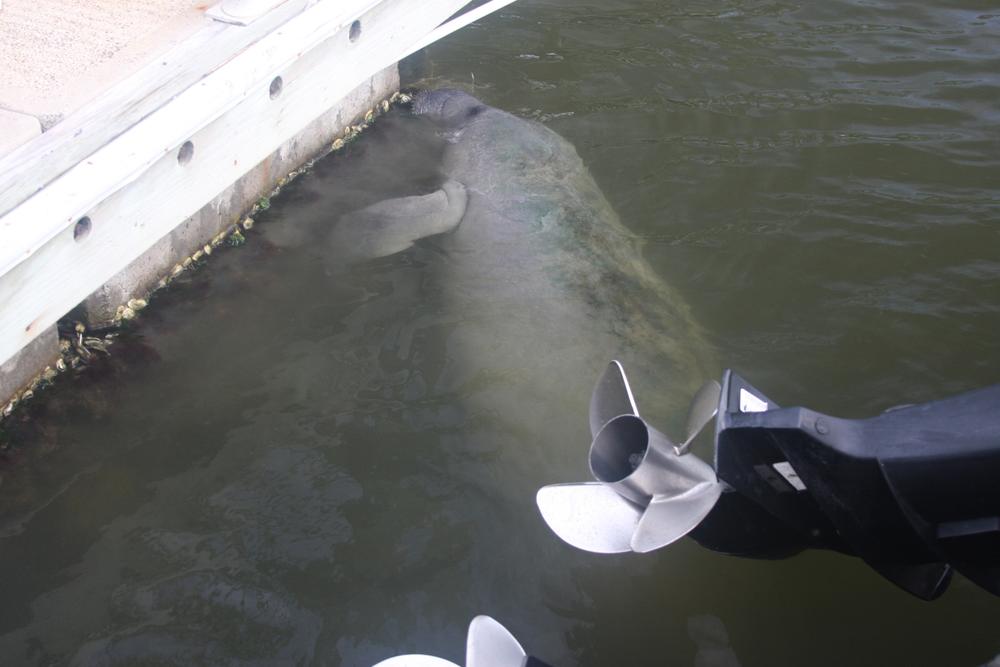
Caption
A manatee eats algae on a dock — near a set of boat propellers that could deal it serious injury if lowered and activated.
Credit: Georgia Department of Natural Resources
LISTEN: This spring, as manatees migrate to Georgia and sea turtles spend more time at the water’s surface, the Georgia Department of Natural Resources is asking boaters to be cautious. GPB's Devon Zwald reports.

A manatee eats algae on a dock — near a set of boat propellers that could deal it serious injury if lowered and activated.
As the weather warms and more Georgians get out on the state's coastal waterways, the Georgia Department of Natural Resources is asking boaters to watch for manatees and sea turtles.
Manatees migrate from Georgia to Florida from March until November. Sea turtles spend more time at the water's surface in the spring.
The two species spend time in coastal estuaries, tidal rivers, and creeks, where they are vulnerable to boat injuries — from being struck by a boat or its propellers — a leading cause of death in manatees and sea turtles, said Jessica Thompson a senior wildlife biologist with DNR.
“The Georgia coast is extraordinary,” Thompson said. "And the reason that we are out in the estuaries, whether we're kayaking or boating … are some of the same reasons that these animals are here. You know, these estuaries are rich ecosystems and have so much food. So while [manatees and sea turtles] are foraging, while they're resting, while they're coming up for air, they can be hit by boats. And some — many — do not survive that.”
"So the slower that you can go — the more you can have someone that's part of your party designated as scanning for wildlife — while you're traveling is really important," she said. "Even when you're at the dock, before you even leave, you want to look around your boat and make sure that, manatees are not by your motor. Sea turtles could also be there."
Other signs the Georgia Department of Natural Resources says to look for include:
Thompson said if you accidentally injure a manatee or a sea turtle, call DNR. She says if a boater is operating their vessel legally and accidentally hits one of these animals, they will not be penalized for reporting it. Notifying DNR will allow someone to go out and help. It could also provide information that could potentially help DNR understand how to prevent an incident in the future, such as learning what type of boat causes those injuries, Thompson said.
"And then we can start to analyze how we might be able to design something to make it so that if a boat does hit a manatee or a sea turtle, it doesn't cause as much harm," Thompson said.
The West Indian manatee found in Georgia is protected under the Endangered Species Act and the Marine Mammal Protection Act. It's illegal to touch them, approach them, or to provide them food or water, Thompson said.
"The reason for that is because it can change their behavior," she said. "And if they become accustomed to being fed ... they'll start coming back. And the more that they come back and try to interact with humans, the more likely they become injured."
Whether you're in a boat or on land, she said, it's best to give manatees and sea turtles some space.